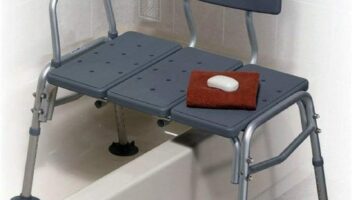Uncovering Effective Couples Therapy Techniques: Strengthening Bonds One Session at a Time
Navigating the complexities of a romantic relationship can often feel like wandering through a dense forest—beautiful yet fraught with obstacles. Whether it’s miscommunication, differences in love languages, or the strains of everyday life, many couples find themselves seeking guidance. Enter couples therapy, a resource that can illuminate the path toward emotional connection and understanding. In this blog, we will explore various couples therapy techniques, share a personal story, and discuss the growing benefits of online therapy treatment.
Understanding Couples Therapy Techniques
Couples therapy encompasses various approaches designed to help partners resolve conflicts and enhance their relationship. Here are some effective techniques used in therapy sessions:
- Emotionally Focused Therapy (EFT): This technique focuses on identifying and understanding emotional responses. By better understanding each other’s feelings, couples can connect on a deeper level.
- Cognitive Behavioral Therapy (CBT): CBT helps couples identify negative patterns of thought and behavior that may be causing conflict. By challenging these thoughts, couples can adopt healthier communication strategies.
- Gottman Method: Developed by Dr. John Gottman, this method emphasizes friendship, conflict resolution, and shared meaning. It also includes practical tools to enhance intimacy and connection.
- Imago Relationship Therapy: This technique incorporates the idea that unresolved issues from childhood can affect adult relationships. Couples will learn how to communicate their needs and heal past wounds.
A Personal Journey: Discovering Support
I remember when my partner and I decided to seek couples therapy. Our communication had become so fraught that even the simplest conversations felt like stepping on a landmine. Friends suggested therapy, while I remained skeptical. "Will talking to someone really help?" I thought.
But, feeling trapped didn’t seem like an option. Our first session was intimidating; I recall sitting on the couch in a cozy office, unsure what to say. However, the therapist gently encouraged us to express our feelings. As we opened up, something remarkable happened—we started to see each other through a new lens.
We practiced active listening, a technique that requires each partner to fully hear and reflect on what the other is saying. Little by little, barriers began to fall, and we found ourselves laughing at the absurdity of our arguments. From that moment on, I realized that therapy wasn’t about pointing fingers but rather about understanding and growth.
The Benefits of Online Therapy
In our increasingly digital world, online therapy has emerged as a viable option for many couples seeking help. Here are several advantages to consider:
- Accessibility: Schedule therapy when it suits you without the inconvenience of commuting.
- Comfort: Attend sessions from the comfort of your home to create a relaxed environment.
- Anonymity: Online therapy can feel less intimidating, making it easier to open up.
- Variety of Experts: Access a broader range of therapists, helping couples find the right fit.
Consider exploring more about how online therapy can assist you in enhancing your relationship. For more details, check out this link for couples therapy help: Online Couples Therapy Help. Your path toward connection and understanding is just a click away! 🌟
Making the Most of Couples Therapy
To maximize the effectiveness of couples therapy, consider these key practices:
- Be Open: Approach sessions with an open mind and heart. Be ready to explore difficult feelings.
- Set Goals: Together, identify what you hope to achieve through therapy—whether it’s improving communication, resolving conflicts, or reconnecting emotionally.
- Practice Outside of Sessions: Use the techniques learned in therapy in your daily lives. This includes active listening or expressing appreciation.
- Consistency is Key: Regular sessions can foster a continuous growth environment.
FAQs about Couples Therapy Techniques
Q: How long does couples therapy typically last?
A: The duration varies depending on individual cases, but many couples find improvements within 8-12 sessions.
Q: Can couples therapy work for any relationship?
A: Yes! Whether you’re dating, engaged, or married, therapy can provide valuable insights and tools for all types of relationships.
Q: Will I need to disclose everything about my relationship?
A: Not necessarily. Therapy is a safe space, so you share what you feel comfortable with—there’s no pressure to reveal everything at once.
As we journey through life’s highs and lows together, it’s essential to carve out time for connection and understanding. Couples therapy techniques offer invaluable insights and tools for nurturing a healthy relationship. Embrace the opportunity to explore your relationship with a professional guide.
Whether you’re just beginning to consider couples therapy or you’re ready to dive in, remember that taking the first step is an act of love—both for yourself and your partner. With commitment, understanding, and a sprinkle of hope, you can pave the way to a stronger, more fulfilling partnership. 🌈
Disclosure:
Hospitals.net is a participant in the Amazon Services LLC Associates Program, an affiliate advertising program designed to provide a means for sites to earn advertising fees by advertising and linking to Amazon.com, .ca, .co.uk, etc.
AI Disclaimer:
Hospitals.net uses artificial intelligence (AI) tools to assist in gathering and summarizing product information, including reviews and other relevant data for Amazon products and services. While we strive to ensure the accuracy of the information provided, AI-generated content may not always reflect the most up-to-date or accurate details. The information on our site should not be considered professional advice, and users are encouraged to verify any product details directly with Amazon or other official sources before making a purchase.
We do not guarantee the completeness or accuracy of the AI-generated content and are not liable for any discrepancies or errors. Any reliance on the information provided is at the user’s own risk. By using this site, you acknowledge that product availability, pricing, and other details may change over time, and Hospitals.net is not responsible for these changes.
Health Disclaimer:
The health products and information provided on Hospitals.net are for informational purposes only and are not intended to substitute professional medical advice, diagnosis, or treatment. Always consult a qualified healthcare provider or medical professional before using any health products or following any advice you find on this site. The content on Hospitals.net, including product recommendations and reviews, is not a substitute for individualized care from a healthcare provider.
We make no warranties or representations regarding the effectiveness, quality, or safety of the products listed on our site. Any use of these products is solely at your own risk. Hospitals.net is not liable for any harm, injury, or adverse effects that may result from the use or misuse of the health products or information provided.
Please read all product labels, warnings, and directions provided by the manufacturer before using any product. If you have any questions about a product or its suitability for your condition, we recommend contacting the manufacturer directly or consulting a healthcare professional.
If you have any concerns regarding the accuracy of the information on this site, please contact us for further clarification.



